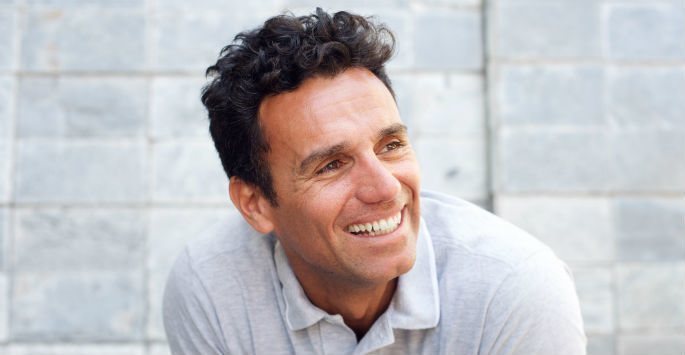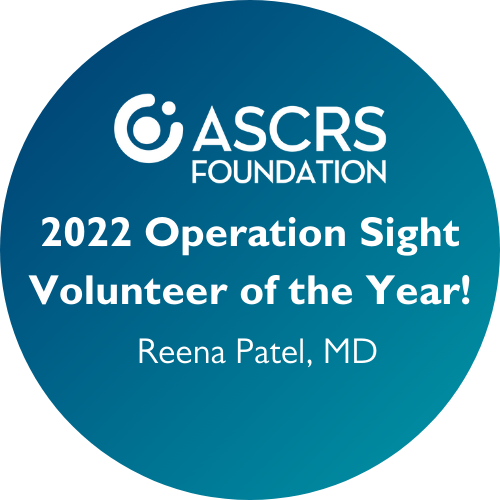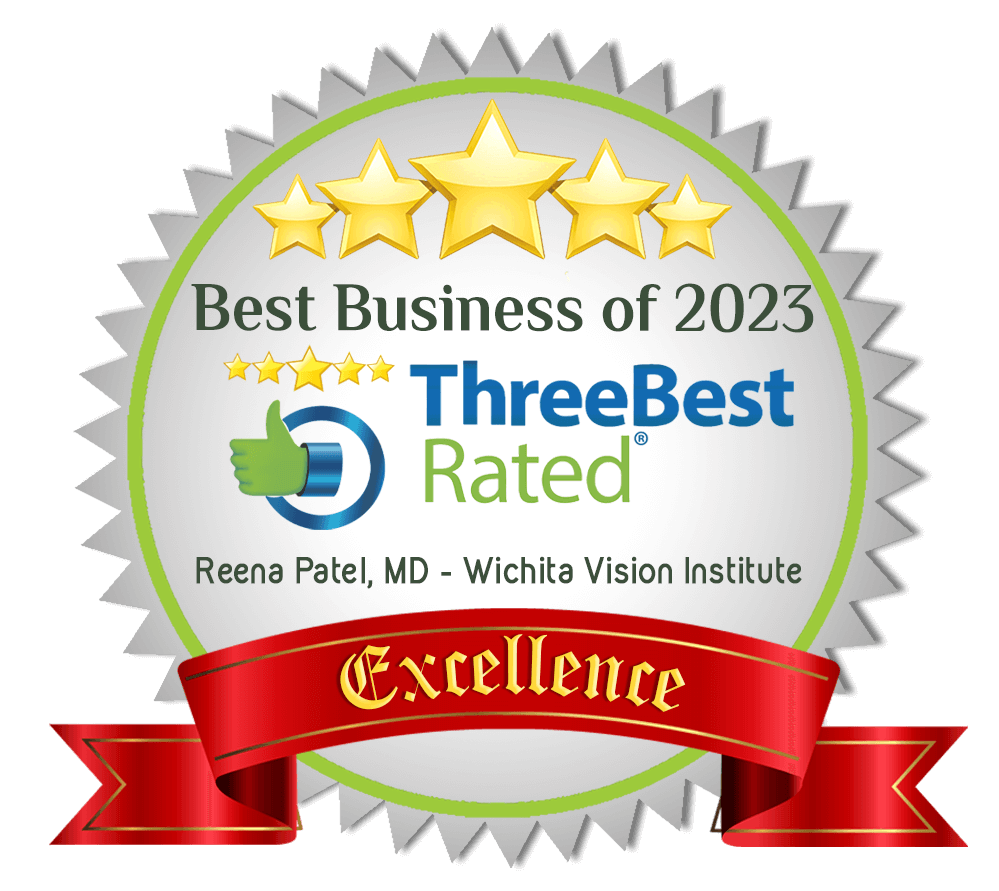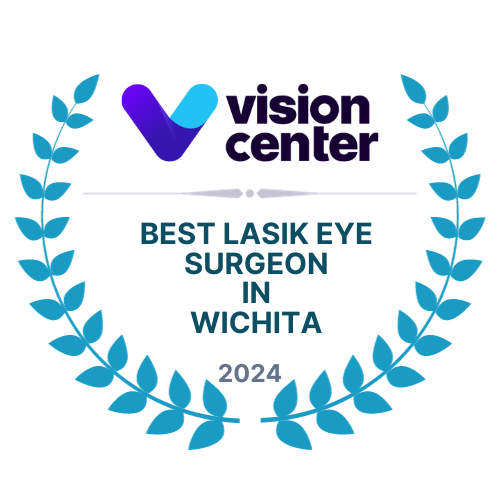An ophthalmologist is a medical doctor who specializes in diagnosing and treating conditions of the eyes. As such, they have far more knowledge and training than opticians or optometrists. Opticians are technicians who work with corrective devices like contact lenses or glasses. Optometrists perform vision tests and can diagnose and treat some conditions, but they cannot perform surgery like ophthalmologists can. Dr. Reena Patel at Wichita Vision Institute is a board-certified ophthalmologist, so you can be sure you are in good hands at our office.
When Should Someone See Our Ophthalmologist?
Anybody that has developed symptoms of eye trouble should schedule an appointment with our ophthalmologist in Wichita. Such symptoms include the following:
- Decreased vision, even if temporary
- Any type of eye injury
- Bulging eyes
- Loss of peripheral vision
- Pain in the eye
- Double vision
- Excess tearing
- Abnormalities of the eyelids
- Halos around lights
- Floaters
- Reddened eyes
- Any type of distorted vision
- Changes in color vision
Risk Factors
People with certain conditions or who belong to certain groups need to see an eye doctor at least once a year. If they have developed eye problems, they may need to see an ophthalmologist wichita even more often. Such people include the following:
- People with a history of eye injury or disease
- People with a family history of eye diseases like glaucoma, cataracts or macular degeneration
- People taking medications that can affect the eyes
- People with diabetes, high blood pressure or HIV/AIDS
- Anybody of Hispanic or African descent, especially if they are also over 40
- People with thyroid disease
- People with rheumatological diseases
What If I’m Perfectly Healthy?
Perfectly healthy people who don’t have any of the risk factors should still be screened from time to time. Eye diseases are often insidious, and vision loss can sneak up on people. Small children, for example, should be taken to an eye doctor at the ages of three and five so they can be tested for conditions like near-sightedness, lazy eye or crossed eyes.
Young people usually have healthy eyes, and the emphasis will be mostly on preventing injuries. Young people who engage in potentially dangerous activities like playing sports, doing yard work or working with chemicals should be strongly encouraged to wear protective gear. They should also be advised to be alert for signs of problems like pain or abnormally dry eyes.
As a general rule of thumb, a healthy person with no eye trouble between the ages of 20 and 29 will need to have a complete eye exam only once during that decade. A person in their 30s will need two complete eye exams during that decade.
After 40, patients should start seeing our ophthalmologist wichita ks more frequently, since most eye diseases develop in older people. Between the ages of 40 and 65, a patient should undergo a complete eye exam every two to four years. People who are 65 and over should see an eye doctor every one or two years.
If anything seems off with your eyes, it is likely time to see our ophthalmologist. Whether you could benefit from a LASIK procedure or you simply need a check-up, now is your opportunity to learn more. Make an appointment at Wichita Vision Institute in Wichita so that your eyes can be properly evaluated. Contact us today to schedule a consultation!







